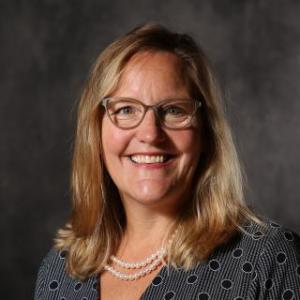Appointments
The Office of Ombuds Services is open and accepting in-person, Zoom and telephone appointments.
To schedule an in-person or remote meeting or phone conversation, please contact the Ombuds:
- Faculty ombudsperson: facultyombuds@osu.edu
- Graduate and professional student ombudsperson: gradombuds@osu.edu
Given that email communications are not private, please do not send sensitive or confidential information in your email.
The Office of Ombuds Services provides an independent, impartial, and confidential space where faculty members, graduate and professional students, and postdoctoral scholars can discuss issues and receive informal counsel and advice.
The office is staffed by two ombuds, one dedicated to faculty and another one for graduate and professional students. Both ombuds work with postdoctoral scholars. The ombuds help explore options and make decisions by gathering information and resources to aid in the process. They also guide faculty, graduate and professional students, and postdocs in identifying and reframing issues. The ombuds help develop solutions and strategies to resolve conflict by thinking creatively and working with visitors to empower them with the tools to solve problems themselves. In some cases, the ombuds might informally mediate and facilitate communication among the parties involved.
While the ombuds do not take sides in a conflict, they report to university officials any trends emerging from the issues brought to them by faculty, graduate and professional students, and postdocs. They can recommend improvements to policies and procedures and identify persistent sources of conflict.
Faculty Ombudsperson
The faculty ombudsperson is an independent, confidential*, impartial, and informal resource for all faculty and is available for assistance in resolving issues and concerns.
The primary mission of the faculty ombudsperson is to support faculty in addressing issues and concerns related to their academic roles at OSU. More broadly, the faculty ombudsperson identifies trends and systemic issues and reports them as needed to university departments and units to improve effectiveness, efficiency, and fairness. The faculty ombudsperson addresses issues and challenges that faculty face within the university with the goal of supporting a positive work environment and advancing fairness and equity. The faculty ombuds also serves postdoctoral scholars.
Note: If the faculty ombuds might have a perceived conflict of interest in any given situation, visitors are welcome to reach out to the graduate and professional student ombudsperson instead.
* Please note that, while the ombudsperson provides confidential support resources for a wide variety of issues, the ombudsperson has reporting obligations with the Office of Institutional Equity related to sexual misconduct and discrimination complaints. Thus, while the ombudsperson will discuss concerns in these areas with sensitivity and keep your information as private as possible, confidentiality cannot be guaranteed. For confidential resources for concern in these areas, please contact a confidential counselor.
Contact: facultyombuds@osu.edu
Meet the faculty ombudsperson

Mollie Blackburn
Mollie Blackburn is a professor in the Department of Teaching and Learning at The Ohio State University. Her research focuses on literacy, language, and social change, with particular attention to LGBTQ+ youth and the teachers who serve them. She is the author of Interrupting Hate, the editor of Adventurous Thinking, among other co-authored and co-edited books. She has received NCTE’s LGBTQ+ Advocacy and Leadership Award; WILLA’s Inglis Award for work in gender, sexuality, sexual orientation, and young people; AERA’s Queer Studies SIG body of work award; and the Alan C. Purves Award for an article in the Research in the Teaching of English deemed rich with implications for classroom practice. She has also been recognized with The Ohio State University’s Alumni Award for Distinguished Teaching.
Services offered
The faculty ombudsperson will:
- listen to faculty concerns and perspectives,
- provide a safe and private place to share issues,
- help faculty explore options for resolving their concerns,
- assist in identifying and interpreting university policies,
- identify university resources related to their concerns,
- facilitate communication or mediate between individuals or groups, and
- remain impartial to all parties involved in a conflict.
The faculty ombudsperson will NOT:
- advocate for an individual's personal position,
- act without consent,
- participate in any formal grievance or appeal, or
- keep identifying records
Common issues and concerns that might be brought to the faculty ombudsperson. Note that this list is not comprehensive:
- miscommunication between faculty administrators,
- conflict or struggles with colleagues,
- interpersonal, intercultural and group conflicts,
- student complaints,
- questions around policies and/or procedures,
- perceived ethical dilemmas,
- perceived unfair treatment,
- perceived retaliation,
- concerns regarding promotion and tenure processes and salary equity, and
- workload issues
Why speak with the faculty ombudsperson
The faculty ombudsperson offers a safe, impartial, non-judgmental place to present concerns and issues and will, to the extent possible, help faculty identify possible solutions and related university resources and processes. The Office of Ombuds Services is an ideal place for discussing problems in the early stages of resolution and facilitating effective steps for resolution.
Graduate and Professional Student Ombudsperson
The graduate and professional student (GPS) ombudsperson is an independent, confidential*, impartial, and informal resource for all graduate and professional students for resolving issues and conflicts, and for exploring options and making important decisions.
The primary mission of the GPS ombudsperson is to support graduate and professional students in addressing issues and challenges they may face in their academic and professional careers at OSU. The GPS ombudsperson addresses issues and challenges that students may face with faculty and advisors, within their programs or within the university at large, with the goal of supporting a positive learning and work environment and advancing fairness and equity for graduate and professional students. The GPS ombuds also serves postdoctoral scholars.
Note: If the graduate and professional ombuds might have a perceived conflict of interest in any given situation, visitors are welcome to reach out to the faculty ombudsperson instead.
* Please note that, while the ombudsperson provides confidential support resources for a wide variety of issues, the ombudsperson has reporting obligations with the Office of Institutional Equity related to sexual misconduct and discrimination complaints. Thus, while the ombudsperson will discuss concerns in these areas with sensitivity and keep your information as private as possible, confidentiality cannot be guaranteed. For confidential resources for concern in these areas, please contact a confidential counselor.
Contact: gradombuds@osu.edu
Meet the GPS ombudsperson

Rebeka Campos-Astorkiza
Rebeka Campos-Astorkiza (she/her/hers), an associate professor of Hispanic linguistics, is the inaugural graduate and professional student ombudsperson. She has been repeatedly recognized for her work with students since joining Ohio State in 2007. The Council of Graduate Students honored her with the James M. Siddens Award for Distinguished Faculty Advising in 2014, and she earned the Excellence in Undergraduate Research Mentoring Award last year.
Rebeka’s motivation as GPS ombudsperson is the satisfaction from working with graduate and professional students and her commitment to finding positive ways to bring about structural changes that will improve their experience at OSU. She emphasizes with the pressure that students feel during their postgraduate careers and believes that OSU can work towards a better learning and working environment for them.
Services offered
The ombudsperson will:
- listen to all concerns and perspectives,
- provide a safe and confidential place to share issues
- assist students in navigating their way through university systems
- help you explore options for resolution,
- facilitate communication or mediate between individuals or groups
- remain impartial to all parties involved in a conflict
The ombudsperson won’t:
- advocate for an individual's personal position
- take action without consent
- act as a witness in a formal grievance
- keep identifying records
- violate university policy as part of a solution to your problem
Common issues and concerns that might be brought to the GPS ombudsperson. Note that this list is not comprehensive:
- miscommunication between advisors, faculty, supervisors and/or students
- conflict or struggles with advisors or peers
- interpersonal, intercultural and group conflicts
- confusion around policies and/or procedures
- perceived ethical dilemmas
- perceived unfair treatment, including bullying, mobbing and harassment
- impact of the university structure/policies on students
Why speak with the GPS ombudsperson
- If you are not sure where to take a concern, the ombudsperson offers a safe and confidential place to start and gives students the opportunity to speak and be heard by an impartial listener.
- While the GPS ombudsperson helps students explore options, it is the students that decide the path they want to follow to solve their issue.
- The ombudsperson can assist students in navigating their way through university systems and help them explore options for resolution, including facilitating communication between individuals or groups.
- The ombudsperson remains impartial to all parties involved in a conflict.
More Information
Principles
The Ohio State Office of Ombuds Services operates according to the standards of practice of the International Ombuds Association (IOA). These include:
Independence
Though the ombuds report annually to the Faculty Council and Office of Academic Affairs, the Office of Ombuds Services functions independently of all university offices, and neither the faculty ombud nor the graduate and professional student ombud represents the university administration nor any individual or group.
Impartiality
Members of the Office of Ombuds Services do not take sides and remain impartial. They are not advocates for faculty or students or for the university. Rather, they act as a facilitator and are even-handed. The ombuds do not have the power to change decisions but can advise, refer, review and/or persuade as neutral and impartial agents. They promote fair practices and foster integrity and timeliness in the administration of university policies and practices that affect faculty, graduate and professional students, and postdoctoral scholars.
Confidentiality
To the extent permitted by law and policy, conversations with the ombuds are confidential except where there appears to be imminent risk of serious harm, where harassment or other illegal activity may be involved and where there is no other reasonable option.
Informality
Meeting with an ombud is an informal and off-the-record process, which includes such means as listening, providing and receiving information, identifying and reframing issues and developing a range of responsible options. Ombuds pursue resolution of concerns and look into procedural irregularities and/or broader systemic problems. They do not make binding decisions or participate in any university adjudicative or administrative hearing, process or procedure related to concerns brought to their attention.
History
The modern use of the term "ombudsman" began in Sweden with the Swedish Parliamentary Ombudsman, instituted to safeguard the rights of citizens by establishing a supervisory agency independent of the executive branch. Currently, more than 400 colleges and universities have ombuds offices.
